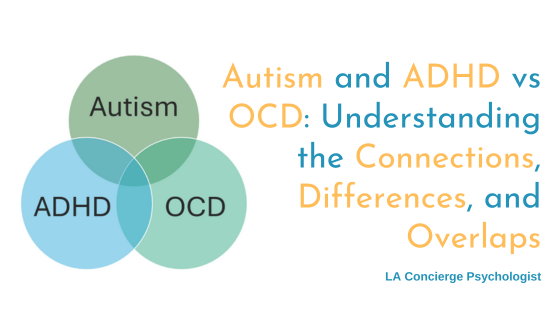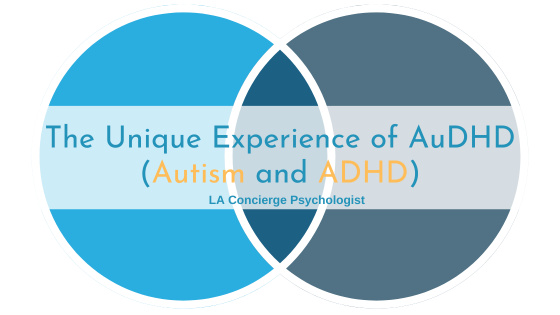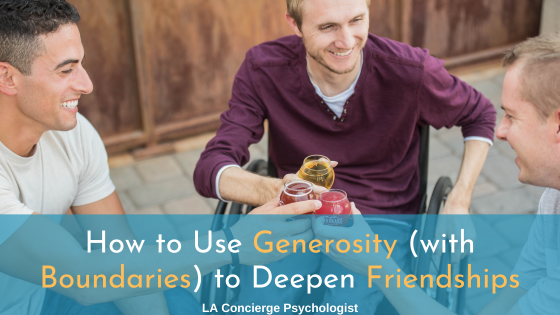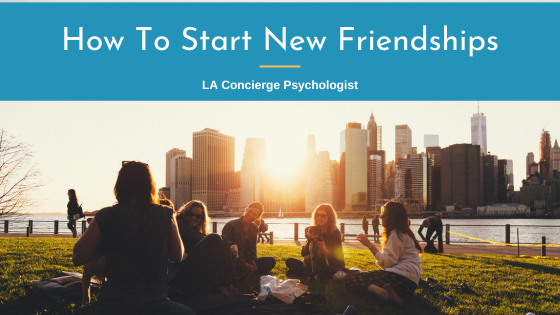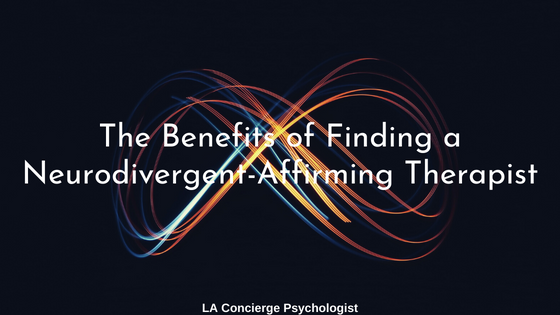Do You Feel Overwhelmed, Unfocused, Or Disorganized?
Do you tend to procrastinate? It may be difficult for you to initiate tasks, especially uninteresting ones. Even when you do manage to get started, you might often lose track of time, which affects your other commitments.
Are you less tidy than your partner or roommate would like? You might wonder, “Why am I so disorganized?” If you recently started a new school semester, a job, or another role, you may feel overwhelmed by your responsibilities. You may also be missing deadlines or getting less-than-stellar performance reviews.
Procrastination, disorganization, and trouble concentrating are all symptoms of Attention Deficit Hyperactivity Disorder (ADHD). Whether you’ve already been diagnosed or are just starting to notice symptoms, you’re probably wondering if there’s anything you can do. While there is no cure for ADHD, therapy can help you work around and better manage your symptoms, freeing you to pursue your personal and professional passions.
ADHD Isn’t Just A Children’s Disorder

Children with ADHD often struggle with schoolwork and household chores because they haven’t yet learned helpful coping strategies. As a result, ADHD is usually diagnosed young and is therefore associated with children. But these children don’t magically grow out of their ADHD characteristics. They carry them into adulthood.
Many adults with ADHD learned coping strategies during childhood and adolescence that make their adult symptoms less obvious. Unbeknownst to others, they exert an enormous amount of effort and mental energy in order to appear “normal.” And when they encounter new challenges or changes in their routine, experience periods of depression or anxiety, or take on new responsibilities, their previously learned strategies begin to falter and their ADHD characteristics often become more pronounced.
Common work environments can make it difficult for adults with ADHD to perform at their best. For example, many people with ADHD struggle to get any work done when their desk is in a noisy office with an open floor plan. Constantly being interrupted by emails and instant messages doesn’t help them focus, either. In addition, the long, unstructured meetings that are common in today’s corporate world are a recipe for inattention.
Societal structures like these, which were built with neurotypical individuals in mind, can make adults with ADHD feel out of place. They might even wonder if there is something wrong with them. The feedback they receive from parents, bosses, and other people reinforces this message. But people with ADHD aren’t lazy, unintelligent, or broken. Their brains are wired differently. This leads to a unique and creative way of thinking as well as perceiving and interacting with the world around them.
If you’re struggling with this disorder, ADHD counseling can help you find new ways of operating that minimize challenges and leverage your strengths.
Adult ADHD Treatment Can Help You Move Through Life With Greater Ease

As adult ADHD specialists, we understand the biological mechanisms that underlie this disorder. That said, each person experiences and reacts to the world differently. To create a personalized treatment, we’ll start by learning more about you. We’ll discuss areas where you tend to struggle and areas where you thrive.
Many of our clients already have a formal ADHD diagnosis or at least an idea of areas where they need support. However, if you want a more detailed picture of your areas of strength and support, we can refer you to trusted neuropsychologists who can complete an in-depth assessment.
Once we thoroughly understand your unique executive functioning profile, we’ll explore possible practical solutions to help get you to wherever you want to be. By combining our expertise as clinical psychologists and your knowledge of your own needs, we will create interventions that are both effective and custom-tailored to you.
If you tend to procrastinate when faced with complex projects, ADHD treatment can help you break large tasks down into manageable pieces. For an upcoming presentation, for example, we might suggest starting at the end and working backward to create benchmarks. If your performance is one month away, how much time would you need to practice, edit, write, and research it?
Forcing yourself to take things one step at a time will reduce feelings of overwhelm. And by associating each step with a due date, you’ll ensure that your project stays on track. We’ll check in with you at multiple points to help you stay accountable and trouble-shoot hiccups in the plan. For example, if you find that you are getting stuck on a particular step, it might make sense to break it down into even smaller pieces.
Another element of adult ADHD treatment will be identifying and connecting you with available support systems and resources. For example, you may find it impossible to pay attention during meetings or lectures that are uninteresting or irrelevant to your work. Asking a colleague or classmate to share their notes with you afterward can catch you up on important details you might have missed.
Our goal is to empower you to overcome challenges independently. However, it may not always be possible for you to adjust or conform to your situation. If the various interventions we try aren’t working, we will explore ways of obtaining a more neurodivergent-friendly environment. New strategies we might try include talking to human resources for accommodations or contemplating a move to a new job or career better suited to your talents.
 If you’re like many of our clients, your personal relationships are also being affected by your ADHD. If your time-management and organizational challenges are causing interpersonal problems, we can brainstorm solutions. For example, your partner or roommate might hate it when you scatter your keys, lunch box, and jacket all over the house. But the idea of putting all of your work things away as soon as you get home might seem unreasonable. Temporarily dumping everything into a bin until you’re ready to put it away could satisfy everyone.
If you’re like many of our clients, your personal relationships are also being affected by your ADHD. If your time-management and organizational challenges are causing interpersonal problems, we can brainstorm solutions. For example, your partner or roommate might hate it when you scatter your keys, lunch box, and jacket all over the house. But the idea of putting all of your work things away as soon as you get home might seem unreasonable. Temporarily dumping everything into a bin until you’re ready to put it away could satisfy everyone.
Being surrounded by neurotypical people when you have adult ADHD can be extremely frustrating. Unfortunately, being in a frustrated mood can negatively impact your ability to manage your ADHD symptoms. To decrease negative feelings and increase your confidence so you can more easily apply what you learn in therapy, we’ll use an evidence-based approach called cognitive-behavioral therapy (CBT). Our brains have a way of assuming the worst, but CBT can help you challenge and provide alternatives to unhelpful and untrue thoughts such as “I can’t do this,” or “I’ll get fired if I make a mistake.”
When you leave behind unhelpful thoughts, you’ll be calmer and more confident. Your newfound emotional stability will empower you to apply the skills from therapy, enabling you to strengthen relationships, accomplish goals, and focus on what’s important to you.
As you consider getting treatment for your adult ADHD, you may wonder. . .
Why would I hire a clinical psychologist when I could work with an ADHD coach or just read a book for less money?
Neither a coach nor a book can provide the level of expertise or customized attention that we offer. Many ADHD coaches have experience with this condition through their own struggle with it, but they have no formal education or training. So they might assume that what worked for them will work for everyone. Books on ADHD also tend to offer one-size-fits-all advice. For example, a book might suggest that you use your phone alarm for time management, but what if you end up ignoring it? Or what if your phone becomes a gateway to more distractions? Working with an experienced therapist can help you connect the dots between general best practices and your specific challenges.
Maybe if I just try harder, I can make myself focus.
 ADHD isn’t a matter of motivation—it’s a matter of biology. The neurochemistry of people with ADHD makes it extremely difficult to control their focus and attention. They also don’t receive the same reward signals that neurotypical folks do for beginning and completing tasks, so they can’t be expected to behave in the same way. Most of our clients have a strong desire to be productive and focused, but they need individual strategies and accommodations to do so.
ADHD isn’t a matter of motivation—it’s a matter of biology. The neurochemistry of people with ADHD makes it extremely difficult to control their focus and attention. They also don’t receive the same reward signals that neurotypical folks do for beginning and completing tasks, so they can’t be expected to behave in the same way. Most of our clients have a strong desire to be productive and focused, but they need individual strategies and accommodations to do so.
Wouldn’t it be quicker and easier just to take some medication?
Unfortunately, ADHD medication isn’t the quick fix that many people want it to be. Some people indeed benefit from medication, but it works far better when used in conjunction with the skills learned in therapy. Medication can make it easier for you to focus, but it doesn’t teach you skills to help prioritize responsibilities, organize your belongings, or structure your day for optimal productivity. And, for those who prefer to avoid medication altogether, therapy is even more essential.
Work With Your Unique Biology, Not Against It
You can’t change the fact that you have ADHD, but you can choose how you react to and manage it. By working with us, you can break through unnecessary roadblocks and start moving through life with greater ease. We offer teletherapy throughout California. Visit our contact page to send us a message or to book a free, 20-minute phone consultation using the buttons below.
Regretfully, Dr. Lee’s schedule cannot accommodate providing 20 minute consultation calls. Client’s may email her to schedule a 60-minute intake session.


